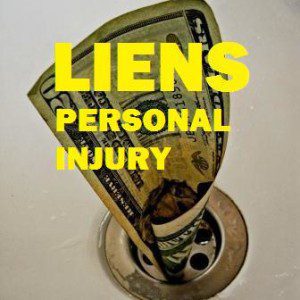
Health insurance companies that pay medical bills after an accident want their money back if there is a settlement, judgment or other monetary recovery by the injured person. Call it a right of recovery or a “lien”. They want their money back.
In an earlier era such issues were often resolved amicably. Not always now. Here’s what can happen in a case that went to the U.S. Supreme Court:
Lien Exceeds Settlement
James McCutchen was injured in a car accident caused by another driver’s negligence. McCutcheon worked at US Airways. The US Airways health plan paid $66,866 in medical expenses related to the car accident. That plan, as with most if not all health insurers, had a right to recover money paid if there were a later settlement.
The problem was that the amount of all insurance available totaled $110,000. Deduct legal fees and McCutchen received $66,000, $866 less than the health plan’s payout. The US Airways plan demanded the full amount.
Three traditional equitable principles apply in dividing settlements between lienholders, the injured person and attorney:
Common Fund Doctrine
The common fund doctrine rests on the equitable principle that parties, like health insurance companies, who obtain the benefit of a lawsuit without bearing any costs are unjustly enriched. Under this rule a lawyer or litigant recovering a common fund for the benefit of entities other than himself or his client is entitled to a reasonable attorney’s fee from the fund as a whole. The doctrine “is designed to prevent freeloading” enabling the injured party to pass on a share of the legal fee to the health plan. An overwhelming majority of state courts apply the common fund rule.
Double Recovery Rule
The double recovery rule allows an insurance company to recoup settlement proceeds only to the extent the award represents “double recovery” to the injured person. So if designated funds in the amount received by the injured person represent medical bill reimbursement, and the health carrier has paid such medical bills the health carrier is entitled to that portion of the settlement. This rule limits the health plan’s reimbursement to the share of the recovery designated for medical expenses.
Make Whole Doctrine
The make-whole doctrine holds that in the absence of contract language to the contrary an insurer will receive no proceeds from settlement of a claim, except to the extent that the settlement funds exceed the amount necessary to fully compensate the insured for the loss suffered. Only after the injured has been ‘made whole’ may the insurer step in and claim funds.
U.S. Supreme Court Rejects Equitable Lien Resolution
The U.S. Supreme Court rejected all three of the above traditional principles in divvying up the overall settlement in US Airways, Inc. v. McCutchen, 133 S.Ct. 1537, decided April 16, 2013.
The “lien” here arose under language in the employee’s health plan. Under the fiction that the employee accepted the language, the lien is characterized as an ‘equitable lien by agreement’. That ‘agreement’, the court held, means the actual terms of the contract are strictly enforced and principles of unjust enrichment give way.
The rationale rests on ERISA, the Employee Retirement Income Security Act and the section of that law under which the health insurance plan sought recovery. ERISA does not authorize equitable relief at large. Instead, ERISA authorizes only such relief as will enforce the terms of the plan. The court held that the language of the plan itself controlled the allocation. Where, as in this case, the agreement abrogates the common-fund doctrine, the insurer is not unjustly enriched by claiming the benefit of its bargain.
So, although the above doctrines were rejected in apportionment of the settlement funds, the common fund doctrine could be invoked in determining payment of the cost of recovery. The reason is that the terms of the plan did not specifically exclude that result. Without sharing costs, the insurer “free rides on its beneficiary’s efforts” taking the fruits while contributing nothing to the labor.
Attorneys and injured parties must go into a case at the outset understanding the trap set by this precedent. Strategies for successful lien resolution must include negotiation with lienholders before settlement documents are drafted and before suit to assure more equitable results. Also, where courts strictly enforce health plan language, obtaining the terms of the plan is crucial.
More personal injury topics here.
Visits: 523




